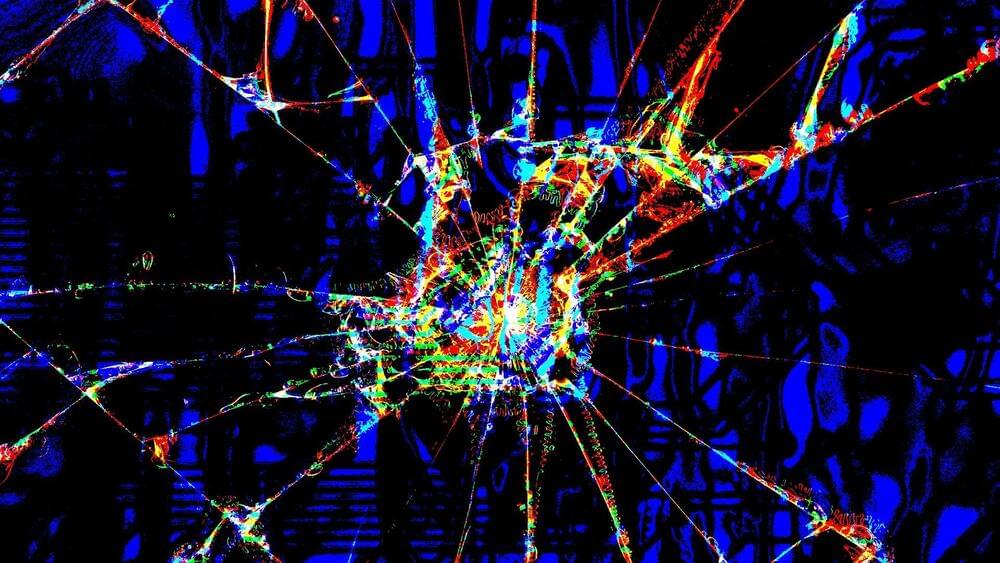Archive for the ‘cryptocurrencies’ category: Page 24
Feb 8, 2022
Feds arrest married couple, seize $3.6 billion in hacked bitcoin funds
Posted by Genevieve Klien in categories: bitcoin, cryptocurrencies, cybercrime/malcode, habitats
Tom HlavacSustainable would be a home built of hempcrete, with a greenhouse capable of growing enough food for the family, a small henhouse, and a few bee hives. And a septic system capable of producing fertilizer.
No need for megacorporate involvement. Somethi… See more.
Tom HlavacIf Musk could catalyze adoption of hempcrete and mass produce 3D printers for that, he would do more if value than everything he has done before.
Continue reading “Feds arrest married couple, seize $3.6 billion in hacked bitcoin funds” »
Feb 6, 2022
The U.S. is considering a radical rethinking of the dollar for today’s digital world
Posted by Shane Hinshaw in categories: cryptocurrencies, finance
Fed Chair Jerome Powell and his colleagues are moving ahead cautiously and methodically.
The Federal Reserve Bank of Boston is also expected to release the results of its research into the technological challenges associated with implementing a CBDC in the U.S.
It would take five-to-ten years to introduce a digital currency in the U.S., several experts say, but they argue policymakers can’t sit idly by.
Feb 4, 2022
Experts test technical research for a hypothetical central bank digital currency
Posted by Saúl Morales Rodriguéz in categories: cryptocurrencies, economics, finance
In collaboration with a team at the Federal Reserve Bank of Boston, MIT experts have begun designing and testing technical research through which further examination of a Central Bank Digital Currency (CBDC) can be performed in the U.S.
The effort, known as Project Hamilton, is in an exploratory phase, and the research is not intended as a pilot or for public deployment. Instead, the researchers have explored two different approaches that could be used to process transactions, and thus could indicate the technical feasibility of a potential CBDC model. In a process involving significant design flexibility, the MIT group tested factors such as the volume and speed of transactions, and the resilience of the systems in general, among other requirements for a viable digital currency.
“The core of what we built is a high-speed transaction processor for a centralized digital currency, to demonstrate the throughput, latency, and resilience of a system that could support a payment economy at the scale of the United States,” says Neha Narula, director of MIT’s Digital Currency Initiative and a research scientist at the MIT Media Lab, who led the effort with the Boston Fed. “It is important to note that this project is not a comment on whether or not the U.S. should issue a CBDC—but work like this is vital to help determine the answer to that question. This project serves as a platform for creating and comparing more viable designs, and provides a place to experiment and collaborate on more advanced digital currency functionality.”
Feb 2, 2022
Ethereum-based AR metaverse ecosystem adopts Polygon to address scaling
Posted by Genevieve Klien in categories: augmented reality, cryptocurrencies, transportation
Peter Nesswhy is he so eager for Biden’s approval? Doesn’t he have parents?
Eric KlienAdmin.
Peter Ness Biden keeps saying that GM is the U.S. leader in EVs and this ticks off Elon. In fact, the old GM plant in California that Tesla bought for a big $42 million produced more cars than any other U.S. factory last year. (All EVs, of course.)
Continue reading “Ethereum-based AR metaverse ecosystem adopts Polygon to address scaling” »
Feb 2, 2022
$323 million in ETH stolen from cross-chain protocol Wormhole
Posted by Genevieve Klien in categories: blockchains, climatology, cosmology, cryptocurrencies, engineering, environmental, finance
Ben RayfieldWeather control tech exists, to some extent. EMP weapons exist. If there was a 477 mile long lightning, it was probably either due to the sun or is a weapon or a terraforming experiment.
Quinn SenaAuthor.
GIPHY
Continue reading “$323 million in ETH stolen from cross-chain protocol Wormhole” »
Feb 1, 2022
How biohackers use fasting, sleep monitoring, and low-meat diets to ‘turn back’ their biological clock
Posted by Genevieve Klien in categories: biological, bitcoin, cryptocurrencies
Biohackers follow a trend originating in the US, using “hacks” to try and turn back their biological clocks.
Proposals in Wyoming and Arizona to accept tax payments in Bitcoin and other cryptocurrencies would undermine the dollar’s unique status.
Feb 1, 2022
A crypto breakthrough? Western states consider taking digital currency
Posted by Genevieve Klien in categories: bitcoin, cryptocurrencies
Proposals in Wyoming and Arizona to accept tax payments in Bitcoin and other cryptocurrencies would undermine the dollar’s unique status.
Jan 31, 2022
China names blockchain trial zones after its crackdown on cryptocurrencies
Posted by Genevieve Klien in categories: biotech/medical, blockchains, cryptocurrencies, finance, government
China has designated some cities and entities to trial blockchain applications, underscoring the importance Beijing is attaching to this particular technology.
In 2019, President Xi Jinping called on China to “seize the opportunities” presented by blockchain, giving his personal backing to the technology.
The Chinese capital Beijing and mega city Shanghai as well as Guangzhou in the south are all part of the pilot projects. Local government departments, universities, banks, hospitals, car companies and power firms are among the 164 entities chosen by China to carry out trial blockchain applications.
Jan 30, 2022
Quantum Computers Could Crack Bitcoin. Here’s What It Would Take
Posted by Dan Breeden in categories: bitcoin, chemistry, cryptocurrencies, cybercrime/malcode, encryption, energy, mathematics, quantum physics, supercomputing
Quantum computers could cause unprecedented disruption in both good and bad ways, from cracking the encryption that secures our data to solving some of chemistry’s most intractable puzzles. New research has given us more clarity about when that might happen.
Modern encryption schemes rely on fiendishly difficult math problems that would take even the largest supercomputers centuries to crack. But the unique capabilities of a quantum computer mean that at sufficient size and power these problems become simple, rendering today’s encryption useless.
That’s a big problem for cybersecurity, and it also poses a major challenge for cryptocurrencies, which use cryptographic keys to secure transactions. If someone could crack the underlying encryption scheme used by Bitcoin, for instance, they would be able to falsify these keys and alter transactions to steal coins or carry out other fraudulent activity.


















